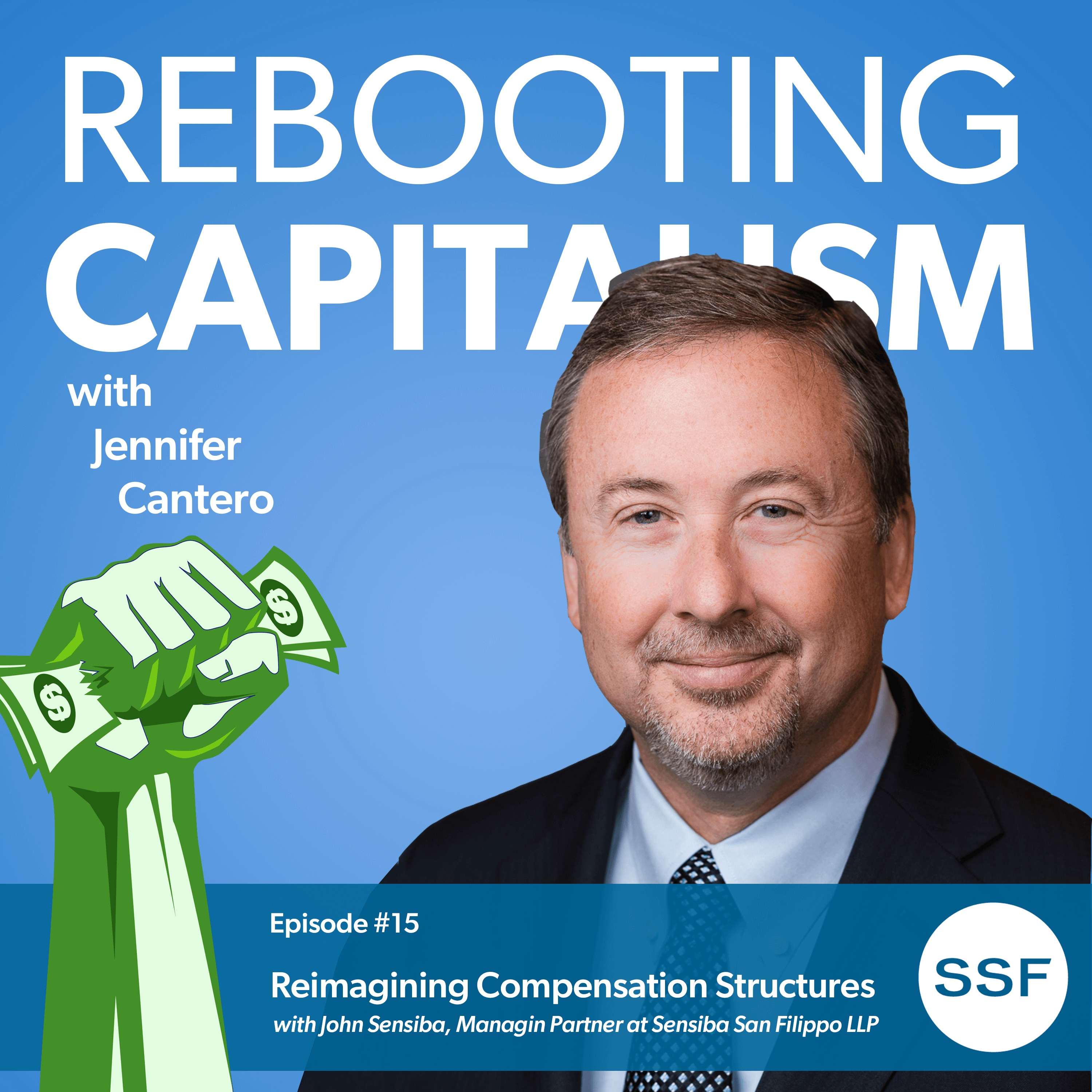
Episode #15 — Reimagining Compensation Structures
John Sensiba, managing partner of Sensiba LLP
In traditional compensation structures, sales-based businesses operate with an “eat what you kill” mentality. CEOs focus on maximizing ROI instead of leading with their hearts. Lately, there has been a shift in businesses who truly care about their clients and their culture by moving away from this mentality. In this episode, John Sensiba. share the reason Sensiba’s compensation model was turned on its head and a better, more sustainable model was born.
Show Notes
In traditional compensation structures, sales-based businesses operate with an “eat what you kill” mentality. CEOs focus on maximizing ROI instead of leading with their hearts. Lately, there has been a shift in businesses who truly care about their clients and their culture by moving away from this mentality.
My guest today is the managing partner of Sensiba, John Sensiba. John is part of the reason Sensiba’s compensation model was turned on its head and a better, more sustainable model was born. Although financial success is important, John believed that Sensiba could provide a better compensation model for its partners and employees that would actually benefit their clients more.
The compensation structure Sensiba adopted isn’t just for accounting firms, but for all types of sales-based businesses.
In this episode, John and I talk about the connection between compensation and a company’s culture, and how he helped create a better culture throughout the entire firm. He shares why an “eat what you kill” mentality doesn’t benefit your clients, and how the other partners and employees responded to the proposed change in compensation. Assessing your compensation structure is important for all businesses who care about longevity, culture, and sustainability.
- What it means to have an “eat what you kill” mentality in business.
- What John’s goals were in reimagining this compensation structure.
- The importance of passion and competency when working with clients.
- How this strategy could be used for any sales-based company.
- That there is no finish line for sustainability in business.
- Why businesses can’t get away with being bad actors anymore.
What You'll Learn
Links Mentioned
- John Sensiba LinkedIn | Sensiba Center for Sustainability
- CEO Action Pledge
Disclaimer
Rebooting Capitalism is a podcast sponsored by Sensiba LLP. The statements, discussions, opinions, and other commentary provided within the program are solely intended for discussion purposes and do not constitute legal or professional advice. Listeners and participants should seek independent legal or professional advice. The views and opinions expressed in this podcast are those of the host and guests and do not necessarily reflect the views or positions of Sensiba LLP. Sensiba LLP does not assume any responsibility or liability for the accuracy, completeness, or reliability of any information discussed within the program.
By accessing or participating in the program, listeners and participants agree to these terms and conditions, acknowledging that they have read and understand the disclaimer and agree to be bound by its provisions.